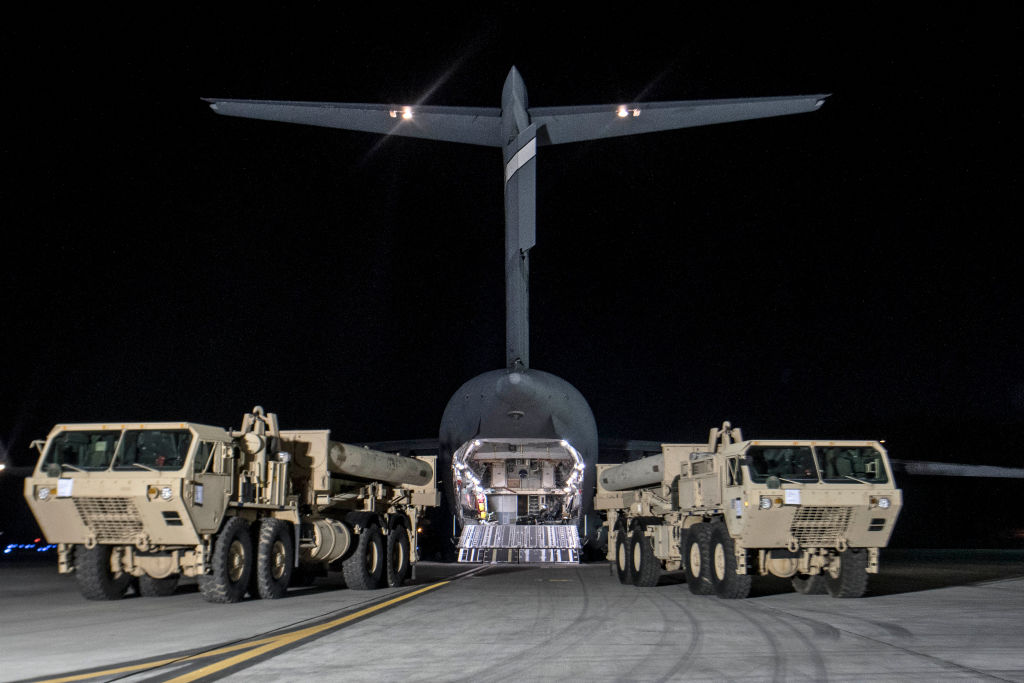
This photo courtesy of US Forces Korea, March 7, 2017 shows a truck carrying the equipment needed to set up the terminal high-altitude area. is shown. Defense (THAAD) missile defense system arrives at Osan base in South Korea.
NurPhoto via Getty Images—USFK/NurPhoto
SOutside Korea China's efforts to hold back President Yun Suk-yeol on his predecessor's policy of freezing the deployment, saying the possible use of the controversial US-made missile shield was "non-negotiable." rebelled against
The decision to deploy Lockheed Martin's terminal high-altitude defense system is a matter of South Korea's self-defense, a senior presidential official told reporters in Seoul on Thursday. The Yun administration is accelerating efforts to "normalize" operations at a US military base in the southern city of Seongju, which has deployed the Third System, officials said.
China is pressuring former South Korean President Moon Jae-in's administration to reaffirm its policy not to allow additional Saad deployments. The Moon Jae-in administration announced in 2017 that it would seek to resolve China's trade restrictions imposed after the first missile defense system was delivered, as part of a US-led effort to counter North Korea's nuclear expansion. I made this announcement last year.
Yun has promised to keep his current Thaad system fully operational and set up another unit in the Seoul area. China opposes the shield over concerns that a powerful radar would enable spying on its missile systems.
The missile shield represents the latest test of President Yun's promise to strengthen security ties with the United States and Japan and take a tougher stance against China and North Korea. He refused to meet US House Speaker Nancy Pelosi in Seoul after a visit to Taiwan earlier this month and initially appeared hesitant to join President Joe Biden's chip alliance. .
The Yun administration subsequently proposed prior consultation with Washington on joining the Chip 4 group. He told reporters on Friday that the US-South Korea partnership now "goes far beyond a security alliance, including economic security." He added that the alliance is the "basic" of South Korea's foreign policy.
Foreign Minister Wang Yi reiterated Beijing's desire to keep what it claims to be an agreement with Moon when he met with South Korean Foreign Minister Park Jin in Qingdao on Tuesday. Under the "three no" policy, the Moon administration has announced no additional Thaad deployments, participation in the US-led missile defense network, or engagement in her tripartite alliance with the US and Japan.
"China attaches great importance to the South Korean government's position," Foreign Ministry spokesman Wang Wenbin said at a regular press conference in Beijing on Wednesday, referring to South Korea's official name. Told. “Based on mutual understanding, China and South Korea were able to properly handle the Saad issue.”
Initial operation of his Thaad system was hampered by protests near the site. increase. South Korean officials said the Yoon administration hopes to have the base operating normally by the end of this month.
—Column He enlisted the help of Murphy to
letters@time.com.


